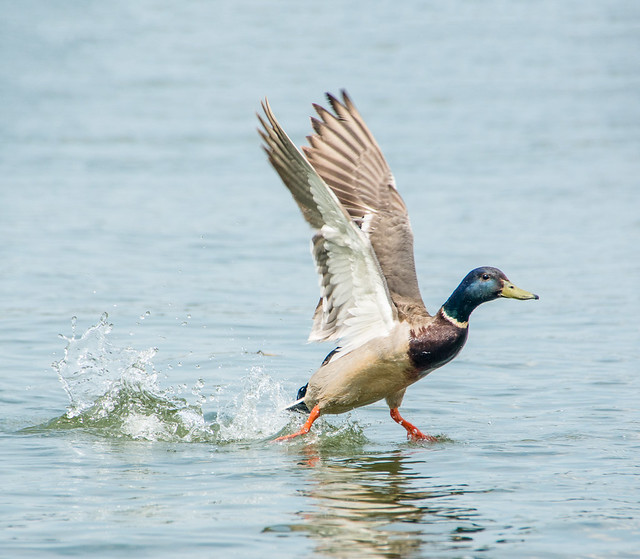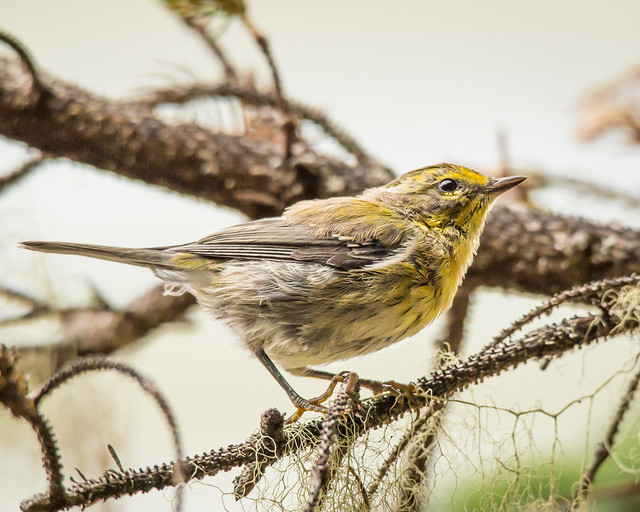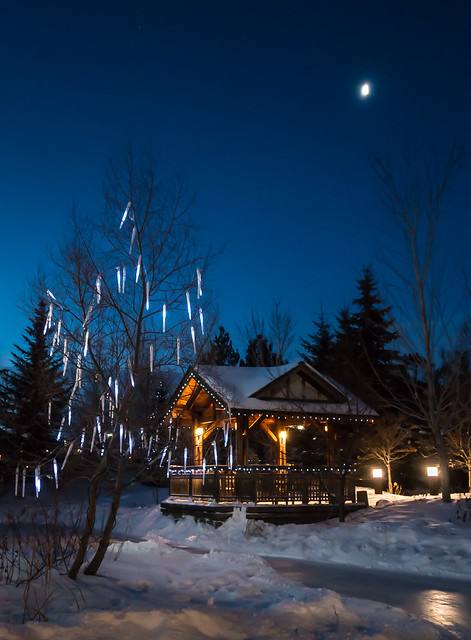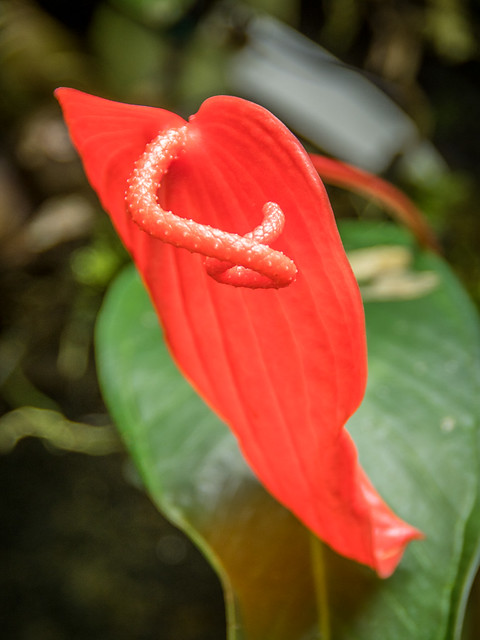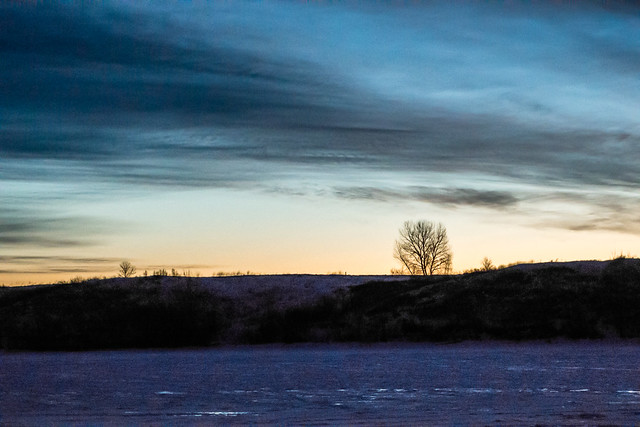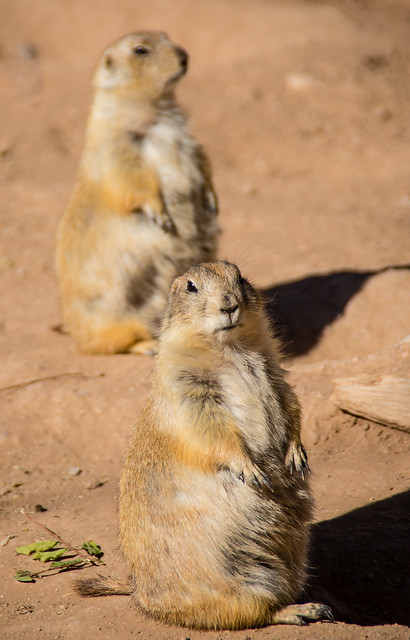Tuesday 30 December 2014
EcoSask News: Major Events in 2015
Outlined below are some of the major events we can look forward to in 2015:
Native Plant Society AGM & Conference, Feb. 6-7
The Native Plant Society of Saskatchewan is hosting its 20th annual meeting and conference in Saskatoon on February 6 and 7. The keynote speaker will be Aimee Hurt from Working Dogs for Conservation, a Montana-based non-profit organization that uses detector dogs to survey for plant and animal species.
Aquatic Invasive Species Workshop, Feb. 11 & 12
Prairie Waters Working Group is hosting a workshop on Aquatic Invasive Species: Understanding the Issues in Saskatoon (Feb. 11) and Regina (Feb. 12). Of particular concern are quagga and zebra mussels. The workshop will cover identification, prevention, and opportunities for eradication.
Seedy Saturday 2015, Feb./March
The dates have been set for Seedy Saturday 2015:
Regina - Feb. 28
Moose Jaw - Mar. 1
Saskatoon - Mar. 7
Yorkton - Mar. 14
Estevan - Mar. 15
SK Association of Watersheds, Apr. 13-15
The Saskatchewan Association of Watersheds will hold its annual conference in Melfort, April 13-15.
2015 Waste Re-Forum, Apr. 22-24
The Saskatchewan Waste Reduction Council is holding their annual Waste Re-Forum from April 22-24 in Saskatoon. Keynote speakers are Chris Turner and Dr. Norman Sheehan.
Environmental Film Festival, April/May
Plans are underway for the 10th annual Sask Eco-Network Environmental Film Festival.
NatureCity Festival, May 23-29
NatureCity Festival, an action-packed week of speakers, workshops, outings and exhibits, is scheduled for May 23-29 in Saskatoon. Stay tuned for further details.
Nature Saskatchewan Spring Meet, June 19-21
The Yellowhead Flyway Birding Trail Association (YFBTA) will be hosting the 2015 Spring Meet of Nature Saskatchewan. The meet will be held Friday, June 19 and Saturday, June 20 and will be centered in Saltcoats. Nature Saskatchewan’s Annual General Meeting will be held Sunday morning, June 21.
It's hard keeping up with all the great events happening around Saskatchewan. Check our Calendar and see if we've missed anything.
Sunday 28 December 2014
The Year in Review - 2014
Our top articles for 2014 cover a wide range of topics – passive house construction, permaculture, light pollution, books about Saskatchewan, and more. Enjoy!
Tuesday 23 December 2014
EcoSask News, December 23, 2014
This week’s EcoSask News brings you a collection of current news stories to ponder as you enter the holiday season.
Local News
Threats to boreal caribou habitat continue to mount in Saskatchewan, including a peat mining project in the Pasquia Bog and oil sands explorations
Congratulations to Rick Huziak for speaking out against light pollution, which wastes energy and harms wildlife (for further information, check out our interview with Rick earlier this year)
Urban Wilderness
Celebrate Urban Birds (CUBs), a project run by the Cornell Lab of Ornithology, studies the birds that manage to eke out a living in cities and surrounding areas
It’s time to broaden our view of wilderness to include urban microwildernesses – small areas that are uncontrollable, unpredictable, and mysterious.
English News Bites
Penny is spending 7 weeks in England. Here are two sites that caught her attention in Lincolnshire:
Ecotricity, Britain’s green energy company, offers everything from wind power to electric cars
Sleaford Renewable Energy Plant – turning wheat straw into electricity
Thought Provoking
A community group that supports local, independent businesses helped a dry cleaner to go green and stay in business
Thursday 18 December 2014
Sustainable Urban Agriculture: Research and Outreach
Permaculture Research Institute of Saskatchewan (PRI SK) in collaboration with the Garden Patch and Let’s Talk Science: an EcoFriendly Sask Action Grant
Permaculture Research Institute of Saskatchewan, in collaboration with the Garden Patch - Saskatoon Food Bank and Learning Centre and Let’s Talk Science, received a $500 EcoFriendly Sask Action Grant to combine youth education and outreach, waste reduction and urban agricultural research using vermicompost, vermicompost extract and commercial mycorrhizal inoculation.
The following information is based on a report prepared by Michelle Hubbard, with editorial assistance from Joanne Blythe and Brit McDonald.
Objectives
1. To educate the community in general, and youth in particular, on vermicomposting and the potential of vermicompost and/or vermicompost extract in urban agriculture and gardening.
2. To make productive use of food waste generated by the Saskatoon Food Bank and Learning Centre through the production of vermicompost.
3. To evaluate the potential utility of commercially available mycorrhizae (Myke Pro) and vermicompost extract in sustainable urban agriculture in terms of plant performance and yield.
Vermicomposting
Six large and four small vermicomposting bins were started at the Saskatoon Food Bank and Learning Centre. Unfortunately, concerns about smell forced the number of bins to be reduced and restricted to Brit’s office.
Two grade 4/5 classes (Brunskill School and Nehiyawewin-Cree Language and Culture Program, Confederation Park Community School) toured the Food Bank and learned about vermicomposting. Each class took bins back with them to care for in their classrooms.
Research
A field trial was conducted at the Garden Patch to assess the impact of vermicompost extract, mycorrhizae and both treatments together, to improve performance of a pumpkin, corn, and bean “three sisters” cropping system.
Healthy, intact soils are living systems containing a diverse array of microorganisms, including bacteria, mycorrhizal fungi, other fungi and invertebrate animals, such as worms. Soil organisms interact with each other and with plants contributing to soil and plant health. By adding mycorrhizae inoculant and compost extract, participants hoped to restore soil health and gain an increased understanding of the myriad of life right under our feet. Healthy soil is teaming with life, and regenerating soil benefits the environment.
Mycorrhizae are fungi which form symbiotic (mutually beneficial) relationships with the majority of land plants, including most vegetables and agricultural crops. Mycorrhizal fungi cannot complete their life cycle without compatible plants. These fungi colonize (grow within and out from) the roots of plants. The plants carry out photosynthesis, converting energy from sunlight to sugars. The sugars produced are shared with the fungi. In return, mycorrhizae provide numerous benefits to the plants such as increased root surface area, improved plant phosphorous nutrition, and drought tolerance.
Compost extract is a liquid extracted from high-quality compost over a period of several hours. It contains the beneficial microbes (bacteria and fungi) from the compost. These microbes can enhance soil health, reduce the risk of plant disease, and promote plant growth. Extraction is done by submerging compost in highly aerated water. The resulting solution is strained to remove larger particles and is then diluted and applied to the surface of the soil.
In contrast, compost tea is made by growing a selection of microbes from high-quality compost in a sugar-rich solution under aerobic (highly aerated) conditions. Unlike compost extract, compost tea must be applied to soil within roughly two hours, before anaerobic growth begins.
Results
Plant traits, such as leaf diameter and/or height and yield were recorded in order to measure the effectiveness of the different treatments. Neither mycorrhizal inoculation, application of vermicompost extract, nor both treatments in combination led to improvement in corn, bean or pumpkin growth or yield in terms of any of the traits measured as compared to the untreated control. Most plant parameters were unchanged by any of the treatments.
Various factors, including pre-existing soil quality and planting locations, may explain the results. Participants felt that they might have been able to increase the reliability of results if more volunteer hours had been available for measuring additional soil factors and taking repeated measurements.
The beans grew very large, likely suffocating the corn. Potentially, selecting alternative varieties, starting the corn from seed (to avoid transplanting stress) and/or planting the beans later could have ameliorated this problem.
Acknowledgements
Vermicompost outreach was done by Michelle Hubbard, Brit MacDonald, Maria Brown (LTS), Mark McLaughlin (PRI SK) and other LTS volunteers.
Bedding corn was grown by Janna Perry.
Field work was carried out by Michelle Hubbard, Janna Perry, Brit MacDonald, Joanne Blythe, Jim Wood and Concepcion Ponce with weeding by other Garden Patch volunteers.
The full report is available upon request.
Permaculture Research Institute of Saskatchewan, in collaboration with the Garden Patch - Saskatoon Food Bank and Learning Centre and Let’s Talk Science, received a $500 EcoFriendly Sask Action Grant to combine youth education and outreach, waste reduction and urban agricultural research using vermicompost, vermicompost extract and commercial mycorrhizal inoculation.
The following information is based on a report prepared by Michelle Hubbard, with editorial assistance from Joanne Blythe and Brit McDonald.
Objectives
1. To educate the community in general, and youth in particular, on vermicomposting and the potential of vermicompost and/or vermicompost extract in urban agriculture and gardening.
2. To make productive use of food waste generated by the Saskatoon Food Bank and Learning Centre through the production of vermicompost.
3. To evaluate the potential utility of commercially available mycorrhizae (Myke Pro) and vermicompost extract in sustainable urban agriculture in terms of plant performance and yield.
Vermicomposting
Six large and four small vermicomposting bins were started at the Saskatoon Food Bank and Learning Centre. Unfortunately, concerns about smell forced the number of bins to be reduced and restricted to Brit’s office.
Two grade 4/5 classes (Brunskill School and Nehiyawewin-Cree Language and Culture Program, Confederation Park Community School) toured the Food Bank and learned about vermicomposting. Each class took bins back with them to care for in their classrooms.
Research
A field trial was conducted at the Garden Patch to assess the impact of vermicompost extract, mycorrhizae and both treatments together, to improve performance of a pumpkin, corn, and bean “three sisters” cropping system.
Healthy, intact soils are living systems containing a diverse array of microorganisms, including bacteria, mycorrhizal fungi, other fungi and invertebrate animals, such as worms. Soil organisms interact with each other and with plants contributing to soil and plant health. By adding mycorrhizae inoculant and compost extract, participants hoped to restore soil health and gain an increased understanding of the myriad of life right under our feet. Healthy soil is teaming with life, and regenerating soil benefits the environment.
Mycorrhizae are fungi which form symbiotic (mutually beneficial) relationships with the majority of land plants, including most vegetables and agricultural crops. Mycorrhizal fungi cannot complete their life cycle without compatible plants. These fungi colonize (grow within and out from) the roots of plants. The plants carry out photosynthesis, converting energy from sunlight to sugars. The sugars produced are shared with the fungi. In return, mycorrhizae provide numerous benefits to the plants such as increased root surface area, improved plant phosphorous nutrition, and drought tolerance.
Compost extract is a liquid extracted from high-quality compost over a period of several hours. It contains the beneficial microbes (bacteria and fungi) from the compost. These microbes can enhance soil health, reduce the risk of plant disease, and promote plant growth. Extraction is done by submerging compost in highly aerated water. The resulting solution is strained to remove larger particles and is then diluted and applied to the surface of the soil.
In contrast, compost tea is made by growing a selection of microbes from high-quality compost in a sugar-rich solution under aerobic (highly aerated) conditions. Unlike compost extract, compost tea must be applied to soil within roughly two hours, before anaerobic growth begins.
Results
Plant traits, such as leaf diameter and/or height and yield were recorded in order to measure the effectiveness of the different treatments. Neither mycorrhizal inoculation, application of vermicompost extract, nor both treatments in combination led to improvement in corn, bean or pumpkin growth or yield in terms of any of the traits measured as compared to the untreated control. Most plant parameters were unchanged by any of the treatments.
Various factors, including pre-existing soil quality and planting locations, may explain the results. Participants felt that they might have been able to increase the reliability of results if more volunteer hours had been available for measuring additional soil factors and taking repeated measurements.
The beans grew very large, likely suffocating the corn. Potentially, selecting alternative varieties, starting the corn from seed (to avoid transplanting stress) and/or planting the beans later could have ameliorated this problem.
Acknowledgements
Vermicompost outreach was done by Michelle Hubbard, Brit MacDonald, Maria Brown (LTS), Mark McLaughlin (PRI SK) and other LTS volunteers.
Bedding corn was grown by Janna Perry.
Field work was carried out by Michelle Hubbard, Janna Perry, Brit MacDonald, Joanne Blythe, Jim Wood and Concepcion Ponce with weeding by other Garden Patch volunteers.
The full report is available upon request.
Tuesday 16 December 2014
EcoSask News, December 16, 2014
Permasask Potlucks
Join Permasask at one of their upcoming potlucks and meetings:
Dec. 18 – potluck and holiday/solstice celebration
Jan. 22 – Candace Savage talking about Wild About Saskatoon
Feb. 19 – Paul Hanley discussing his latest book, Eleven
Native Plant Society AGM, Feb. 6-7
The Native Plant Society of Saskatchewan is hosting its 20th annual meeting and conference in Saskatoon on February 6 and 7. The keynote speaker will be Aimee Hurt from Working Dogs for Conservation, a Montana-based non-profit organization that uses detector dogs to survey for plant and animal species.
Cross-Country Ski Loppet, Feb. 27-Mar. 1
Join SaskOutdoors and the Kamsack Ski Club for their annual cross-country ski loppet at Duck Mountain, Feb. 27-Mar. 1.
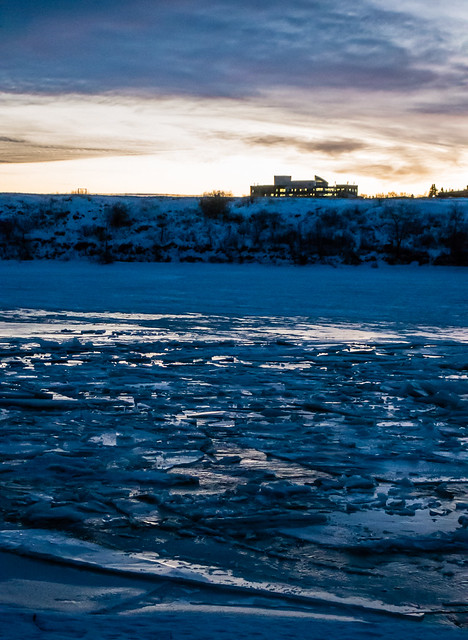 Local News
Local NewsCommunity-Based Watershed Planning
Over the last several years, the local community around Pike Lake has been working on a watershed planning initiative to identify and address issues related to their local watershed. Stakeholders involved include local cottage owners and farmers, the Rural Municipality of Vanscoy, Pike Lake Provincial Park, Water Security Agency, and other interest groups.
The stakeholders have identified the main issues affecting their local watershed and some key management actions required to address these issues. They are now developing a plan.
If your community is interested in addressing local source water protection issues, contact Renny Grilz at South Saskatchewan River Water Stewards for more information.
Environmental Film Festival
The Saskatchewan Eco Network has started planning their 10th annual film festival to be held in April or May 2015. They’re looking for ideas, volunteers, and donations in order to make this the best film festival ever.
Ness Creek Waste Reduction
Ness Creek Festival, in conjunction with the U of S School of Environment and Sustainability, conducted a waste audit for the 2014 festival to provide public education and baseline data for future sustainability initiatives. A team of 35 volunteers, coordinated by Master’s student, Kelly Richardson, attended the festival, making it one of the cleanest festivals to date.
Future Proof Your Home
The second edition of How to Future Proof Your Home by Shane Wolfe is now available electronically. The second edition contains 30% new information with plenty of information about building passive houses.
GOT Parks
The Canadian Parks Council has established Get Out To Parks to encourage young people to enjoy our parks. You can follow them on Facebook and Twitter.
EcoSask News is a weekly round-up of local news and events. Email us if you have items you would like us to include. Additional upcoming events can be found on our Calendar.
You can follow EcoFriendly Sask by liking us on Facebook, following us on Twitter, or by email (top right corner).
Tuesday 9 December 2014
EcoSask News, December 9, 2014
Events
Black-Tailed Prairie Dog & Black-Footed Ferret Ecology, Dec. 11
Tara Stephens, Calgary Zoo’s Centre for Conservation and Research, will discuss the Prairie Dog/Ferret Ecology in Grasslands National Park in a Dec. 11 webinar organized by PCAP Sask.
Green Drinks Saskatoon, Dec. 12
Everyone is welcome to attend Green Drinks Saskatoon at 5:30 pm, Dec. 12, at the Hose & Hydrant on 11th Street E.
Christmas Bird Count for Kids, Jan. 2
Join the Saskatoon Young Naturalists between 10:30 am and 3:30 pm as they head out once an hour to count the birds you see at the Forestry Farm Park. You can warm up afterwards with cookies and hot chocolate.
Effects of Oil Development on Grassland Songbirds, Jan. 21 (Regina)
Jason Unruh, University of Regina, will talk about the Effects of Oil Development on Grassland Songbirds at 7 pm, Jan. 21, at the Saskatchewan Science Centre as part of PCAP’s Native Prairie Speaker Series.
Aquatic Invasive Species Workshop, Feb. 11 & 12
Prairie Waters Working Group is hosting a workshop on Aquatic Invasive Species: Understanding the Issues in Saskatoon (Feb. 11) and Regina (Feb. 12). Of particular concern are quagga and zebra mussels. The workshop will cover identification, prevention, and opportunities for eradication.
Local News
The City of Saskatoon is considering a solar power project to test 3 different types of solar PV panels to help power the landfill gas power generation facility. They are also considering a pilot project to help up to 50 households purchase and install solar panel systems.
Unlike Saskatoon, the city of Magog, QC, is implementing a lighting policy that is reducing light pollution and energy use.
The Saskatchewan government has signed a 10-year agreement with Weyerhauser to conduct ecologically responsible logging operations emulating natural growth patterns of the forest in Duck Mountain Provincial Park.
South Saskatchewan River Water Stewards offer some useful information on how and where to recycle agricultural materials
Thought Provoking
9 Guidelines for Green Giving – from buying less to giving useful stuff and experiences
EcoSask News is a weekly round-up of local news and events. Email us if you have items you would like us to include. Additional upcoming events can be found on our Calendar.
You can follow EcoFriendly Sask by liking us on Facebook, following us on Twitter, or by email (top right corner).
Tuesday 2 December 2014
EcoSask News, Dec. 2, 2014
Biodiversity & Food Production, Dec. 2
Jason Clay, Senior Vice President, World Wildlife Fund, will speak on Saving Biodiversity by Promoting More Sustainable Food Production at 12:30 pm, Dec. 2, in Room 2302, Western College of Veterinary Medicine, U of S.
Green Drinks Regina, Dec. 4
Green Drinks Regina is meeting at 5:45 pm, Dec. 4, at Abstractions Café.
Citizen Scientists & Bird Conservation, Dec. 11
Brenda Dale, a wildlife biologist, promotes bird conservation through the use of electronic data gathering programs. In her talk at the Saskatoon Nature Society meeting, she will compare the available programs, noting the type of information collected and the skill level required to use them, as well as stressing the vital importance of the data accumulated through the work of volunteers.
Everyone is invited to attend the talk at 7:30 pm, Dec. 11, in Room 106, Biology Building, U of S.
Christmas Bird Counts
Everyone is invited to participate in the local Christmas Bird Counts:
Qu’Appelle Valley - Dec. 14
Gardiner Dam - Dec. 15
Radisson-Borden - Dec. 18
Clark’s Crossing - Dec. 20
Saskatoon - Dec. 26
Pike Lake - Jan. 3
EcoFriendly Action Grant
The John Paul II KEY CLUB in North Battleford will receive a $500 EcoFriendly Action Grant to support their tree planting project. Over the past 8 years, the club has planted 16,000 trees in the North Saskatchewan River Valley. They plan to plant an additional 2,000 trees in April 2015.
Net Metering Rebate Extended
SaskPower’s Net Metering Rebate has been extended until November 30, 2016. The one-time rebate is equivalent to 20% of eligible costs to a maximum payment of $20,000 for an approved and grid interconnected net metering project. The program covers electricity customers of SaskPower, Saskatoon Light & Power, and City of Swift Current.
Sask Oil Spills
The Government of Saskatchewan recently released a 167-page document listing crude oil and toxic water spills from sites and facilities owned by the petroleum industry. Many of these documents have probably never been seen before by the general public.
More Cars than People
Once again, there are more cars than people in Saskatoon with 1.1 cars per person. Only 5% of the population uses public transit.
Urban Coyotes
Don’t be surprised if you see a coyote in the city. Project Coyote says, “Keeping coyotes wild and wary is the key to successful coexistence.” Project Coyote has published a brochure that explains how to keep coyotes at a distance.
Thought Provoking
Canada’s process to protect endangered species is failing, says Dr. Brett Favoro: "If you're not protecting habitat, then no matter how long we leave something listed, it seems unlikely that it's going to recover and do better.”
EcoSask News is a weekly round-up of local news and events. Email us if you have items you would like us to include. Additional upcoming events can be found on our Calendar.
You can follow EcoFriendly Sask by liking us on Facebook, following us on Twitter, or by email (top right corner).
Labels:
Agriculture,
Birds,
EcoFriendly Action Grant,
Education,
Energy,
Transportation,
Urban,
Wildlife
Subscribe to:
Posts (Atom)
